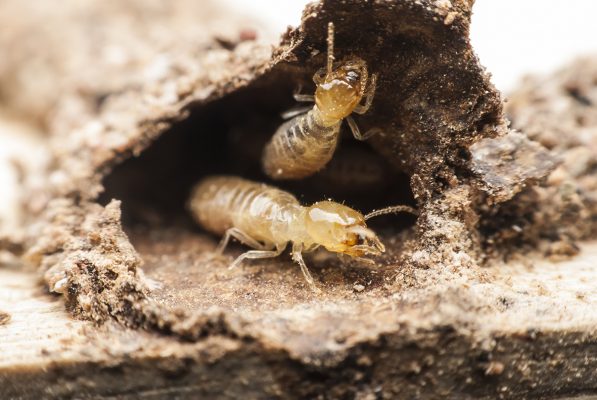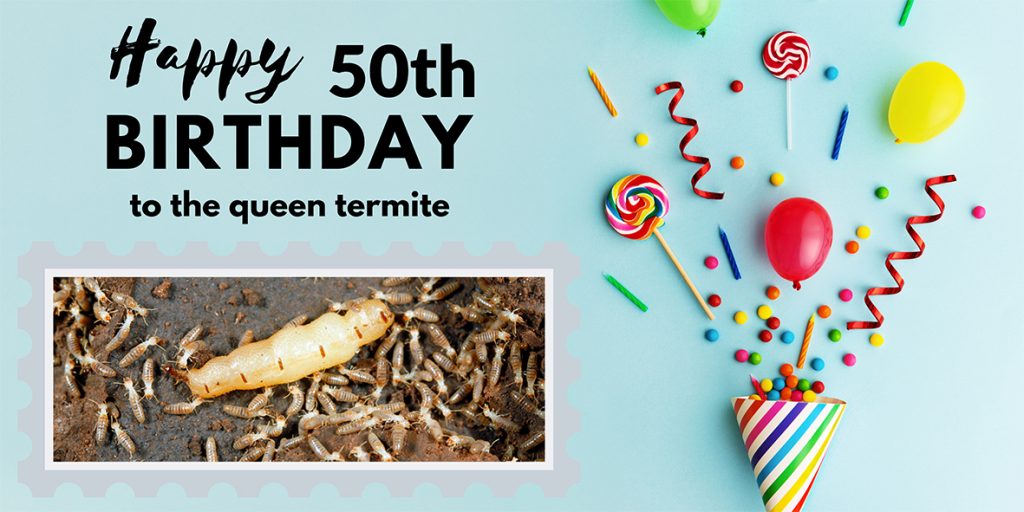How About Those Pesky Flying Termites? How Long Do Swarming Termites Live for?
Wishing a termite queen a happy 50th birthday may not be on your list of things to do. However, learning about termite lifespans can help in eliminating them. We know termite queens (and kings) can live up to 50 years and are the longest living insects in the world. What about the other castes of termites? How long do they live for? Soldiers, workers, flying and swarming termites are all essential to a thriving colony. Below, we answer the question, how long does a termite live?
Termites Are Essential for the Ecosystem
Termites are an essential evil. They devour decaying organic cellulose materials and convert them into rich soil. Knowing they can literally eat your home can make it hard to appreciate their benefits to the ecosystem. No wonder many people are curious to know about their lifespan and how long they may stick around.
How Long Does a Termite Live? What is Their Lifespan?

Termites have a long lifespan. However, their survival depends on various crucial factors like:
• Climate conditions.
• Colony health.
• Species type, etc.
• Preventative and baiting systems
Read on to learn more about the lifespan of each member of the colony.
Worker, Soldier, Flying (Swarming) and Queen Termite Lifespans
Worker and Soldier Termites
Workers and soldiers usually live one to two years. Sometimes even only a few months, as some of them die soon after starting work(*1). Although one or two years may seem insignificant, it is a long time compared to other short-lived insects.
Alates, Flying or Swarmer Termites
Primary reproductives known as alates, flying termites or swarmers have a tragic survival rate. Immediately after leaving the colony to mate, they often become food for ants, spiders, and birds. They are also terrible flyers. However, if they do survive the swarm and settle with a mate, a colony is established very quickly.
Queen Termites
The termite queen is different from the rest of the colony. In some Australian species, queens are reported to live up to 50 years!(*2). With the ideal climate conditions, they can even live decades more. Plus, she breeds over and over and has new workers and soldiers to maintain the colony’s welfare. If the queen dies, other reproducers in the colony can take over her role(*3).
Learn more about the lifecycle of termites.
How to Reduce the Lifespan of Termites (and Eradicate Them)
In this video, Brad shows how termite monitoring stations are installed around the property. If termites are present, they can also be baited via these stations. These are a brilliant way to catch termites who may be heading towards your home early. They are the best preventative systems on the market.
If you have termites in or near your property, they are going to stick around for years (even decades) to come. The only way to completely clear them is with professional bating. Once the colony is eradicated, setting up preventative measures will safeguard your home. Any new termites that happen upon your property will then have to celebrate their birthdays elsewhere.
Contact us to learn more or have your home inspected for termites.
References *1. Tasaki, E, Takata, M & Matsuura, K. Why and How Do Termite Kings and Queens Live So Long? Royal Society Publishing. Vol. 376. No. 1823. 2021. *2. Thorne, BL, Breisch, NL & Haverty, MI. Longevity of Kings and Queens and First Time of Production of Fertile Progeny in Dampwood Termite (Isoptera; Termopsidae; Zootermopsis) Colonies With Different Reproductive Structures. Journal of Animal Ecology. Vol. 71. 1030-1041 pp. 2002. *3. Barwary, Z. Investigating Termite Behavior and Application Methods of Non-repellent Termiticides for the Control of Eastern Subterranean Termites (Isoptera: Rhinotermitidae). 2014.

